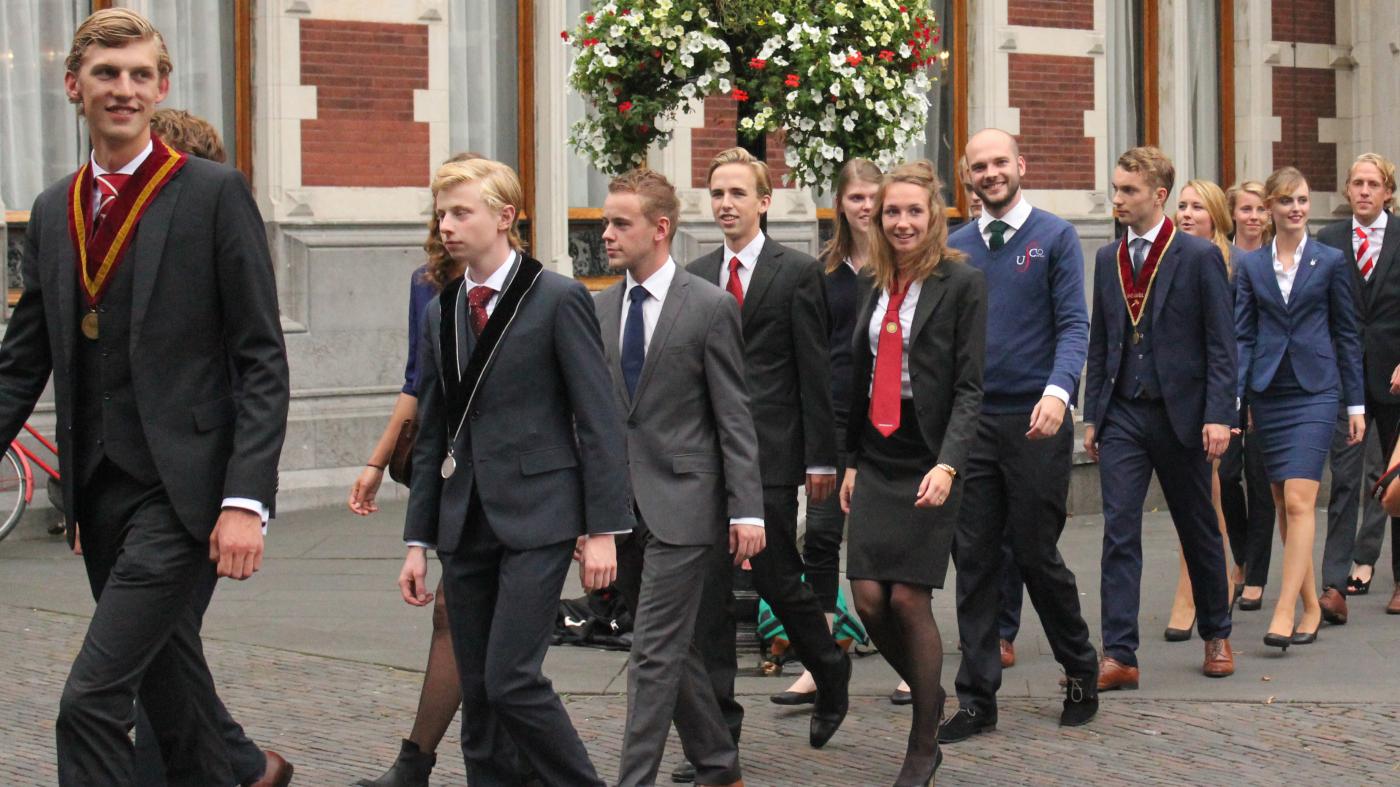Student associations don’t want to speak English

If you’ve ever set foot inside a student association’s accommodation, you know you’ll find zero traces of the internationalization of Dutch higher education. The associations are veritable forts of Dutch-ness, with old-fashioned traditions, rules and songs, as DUB wrote a while back. All this, despite the fact that there’s an 18 % increase in international students enrollments for next year. Are these associations even open to internationals?
Definitely, says vice-chairman Rubert Puylaert of the Landelijke Kamer van Verenigingen (Dutch Chamber of Associations) (website LKvV - only in Dutch ), an interest organization for 48 student associations. Research shows that 63 percent of associations have current projects running to stimulate internationalization. But that doesn’t mean English should be the second language for them, Puylaert says. “That’s not the solution. Research shows may international students come here to get better acquainted with Dutch culture.”
Questionnaire about internationalization
Puylaert refers to a recently published study about internationalization, done by the LKvV itself. Accessibility to student associations for internationals appears to be in a fairly tragic state – three quarters of the 82 foreign students who participated weren’t even aware the option to join a Dutch student association existed, or think they won’t get in anyway.
It’s not a surprising conclusion: according to a questionnaire held among the boards of 41 student associations, a quarter of them expect their members to be unhappy about a possible increase in international students at their associations. Another 25% think their members will rejoice, and half is neutral. Only fifteen percent think opening up for more international students is a realistic goal.
The lack of foreign participation in the student association life is mostly a result of the short stays of international students, Puylaert thinks. “Many foreign students are only in the Netherland for a semester. It’d be difficult to realize a full membership in such a short time.” Most exchange students choose to join the Erasmus Student Network (ESN), where they’ll find people in similar situations to party and socialize with.
Conventions and traditions
In some cities, associations are working on ways to accommodate international adventurers who want to get involved in the unknown Dutch student association life. At Albertus Magnus, an association in Groningen, the club conventions and traditions are kindly translated to English for the international students during the introduction days.
That doesn’t happen at Minerva, a Leiden association, and that caused both advantages and disadvantages for the hazing of a 24-year-old foreign student, who by now is able to speak Dutch very well. “During the introduction days, I couldn’t understand a thing,” she’s quoted as saying in the LKvV study, “but that made it easier mentally, because I didn’t understand the nasty things they were saying. I did think it was a shame that I couldn’t understand the things we were taught about Minerva’s history.”
The study’s conclusion? Associations could try harder to be more interesting and accessible for foreign students. Members may be scared their culture will change, but that fear, according to the LKvV, is unfounded. “If done in the right way, it won’t be necessary to change much about the language and culture within a student association.”